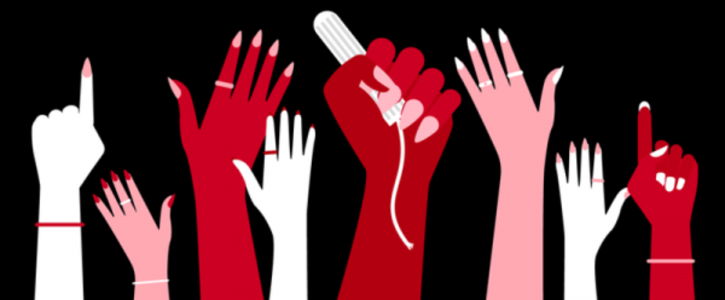100 signatures reached
To: State Senators and Assembly Members
Demand the extension of Assembly Bill 31 to remove luxury taxes on period products in California

Here in California, the sales tax is exempted on medical prescriptions drugs, walkers, and similar health necessities. Even Viagra is exempt, yet menstrual products are not. Assemblywoman Cristina Garcia passed Assembly Bill 31, which has since temporarily removed this luxury tax on period products across the state, until 2023. While this is a temporary solution, and a step towards free menstrual products for all, we demand the extension of this bill. With its extension we can continue fighting for menstrual equity and affordable period products in California.
Visit the "Campaign Website" section below for more ways to combat period poverty!
Visit the "Campaign Website" section below for more ways to combat period poverty!
Why is this important?
There exists unreasonably high luxury taxes on menstrual products. Luxury taxes are taxes placed on items that are considered non-essential. People who menstruate do not have control over their periods, and therefore pads, tampons, panty-liners, and diva cups are absolutely essential. They are not luxuries.
The price increase in these products has created a phenomenon of menstrual inequity among homeless and low-income women, we call this “period poverty”. In California, women pay $20 million in taxes on menstrual products annually. USA Today estimates that women have to spend anywhere between $150 to $300 annually on period products.This is a detrimental price for low income and homeless women, who often have to choose between essentials like food and clothes, or having menstrual products.
Period poverty is especially relevant to Los Angeles, where 20,671 women are currently experiencing homeless, a disproportionate amount being women of color. To put this into perspective, a box of tampons cost $7 at a common retailer; this often means homeless menstruators are forced to choose between their next meal or these products. Additionally, many homeless shelters in Los Angeles are constantly in need of sufficient menstrual products to distribute to the people there. This is due to the stigma around periods that makes people potentially uncomfortable when donating these products, which just proves the need for greater financial accessibility to period products.
The price increase in these products has created a phenomenon of menstrual inequity among homeless and low-income women, we call this “period poverty”. In California, women pay $20 million in taxes on menstrual products annually. USA Today estimates that women have to spend anywhere between $150 to $300 annually on period products.This is a detrimental price for low income and homeless women, who often have to choose between essentials like food and clothes, or having menstrual products.
Period poverty is especially relevant to Los Angeles, where 20,671 women are currently experiencing homeless, a disproportionate amount being women of color. To put this into perspective, a box of tampons cost $7 at a common retailer; this often means homeless menstruators are forced to choose between their next meal or these products. Additionally, many homeless shelters in Los Angeles are constantly in need of sufficient menstrual products to distribute to the people there. This is due to the stigma around periods that makes people potentially uncomfortable when donating these products, which just proves the need for greater financial accessibility to period products.
